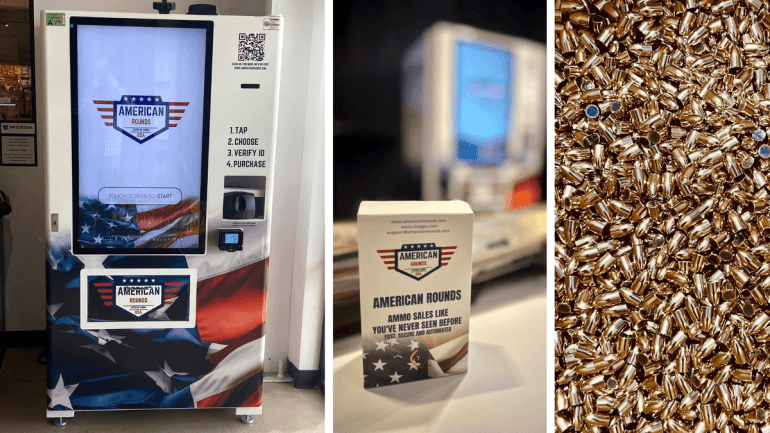- AI-equipped vending machines by American Rounds offer convenient bullet purchases in the southern US.
- Machines operate 24/7 with ID and facial recognition verification for legal compliance.
- Mixed community reactions spark debate over safety and accessibility.
- Tuscaloosa, Alabama, removes one machine following public scrutiny and low sales.
- Privacy concerns arise regarding facial recognition data storage.
Main AI News:
The introduction of AI-equipped ammunition vending machines is reshaping the landscape of firearm accessory sales across multiple states in the southern United States. Manufactured by American Rounds, these innovative devices promise unprecedented convenience for customers looking to purchase bullets. Decorated with patriotic American flag graphics, these vending machines operate around the clock, allowing customers to buy ammunition on their own schedules, free from the constraints of store hours and lengthy checkout lines.
Currently available in states like Alabama, Louisiana, Oklahoma, and Texas, with plans for further expansion, these machines adhere rigorously to federal and local regulations, ensuring the highest standards of responsible sales. However, their arrival has sparked mixed reactions. While some embrace the accessibility and efficiency of these vending machines, others express concerns about the potential implications of having ammunition readily available in grocery stores.
In Tuscaloosa, Alabama, for instance, the installation of an American Rounds vending machine in a local grocery store recently stirred controversy. Following a city council meeting, where concerns were raised about the presence of such machines in public spaces, including grocery stores, one store decided to remove its machine due to low sales. Councilman Kip Tyner voiced surprise and skepticism during the council meeting, reflecting community apprehensions about the convenience of purchasing ammunition through vending machines.
To address legal and safety concerns, American Rounds has integrated advanced AI technology, ID scanning, and facial recognition software into their vending machines. Before completing a purchase, customers are required to insert a government-issued ID, which is then scanned and cross-verified with facial scans captured by the machine. CEO Grant Magers has outlined the meticulous verification process, underscoring the role of AI in confirming the identity and age of each buyer to ensure compliance with age restrictions and other legal requirements.
While these technological advancements promise enhanced convenience and regulatory compliance, questions linger regarding data privacy and the management of personal information collected during the verification process. Given the sensitive nature of facial recognition technology, ensuring robust safeguards against potential misuse of personal data remains a critical concern.
Conclusion:
The introduction of AI-powered ammunition vending machines represents a significant shift in the firearm accessory market. While offering unprecedented convenience and adherence to regulatory standards, the machines have sparked community debates over safety and public accessibility. As technology continues to influence retail practices, ensuring robust privacy protections and addressing public concerns will be crucial for the sustained integration of such innovations in the market.

